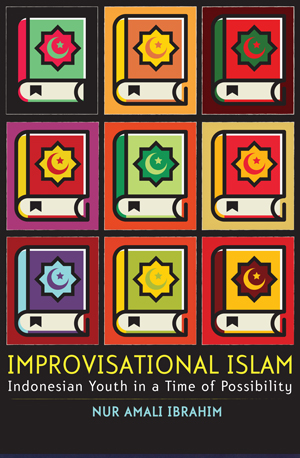Improvisational Islam is about novel and unexpected ways of being Muslim, where religious dispositions are achieved through techniques that have little or no precedent in classical Islamic texts or concepts. Nur Amali Ibrahim foregrounds two distinct autodidactic university student organizations, each trying to envision alternative ways of being Muslim independent from established religious and political authorities. One group draws from methods originating from the business world, like accounting, auditing, and self-help, to promote a puritanical understanding of the religion and spearhead Indonesia’s spiritual rebirth. A second group reads Islamic scriptures alongside the western human sciences. Both groups, he argues, show a great degree of improvisation and creativity in their interpretations of Islam.
Department of Religious Studies social media channels
- College of Arts & Sciences
- Department of Religious Studies

 The College of Arts
The College of Arts